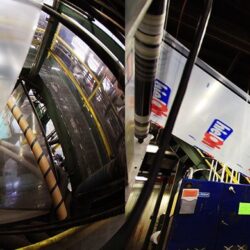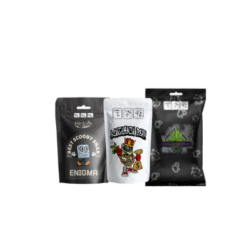Inconel 625 Plates are among the most advanced nickel-based superalloy products used in extreme industrial environments. Known for their exceptional resistance to corrosion, high strength at elevated temperatures, and ability to withstand severe mechanical stress, these plates are a preferred material for critical applications in offshore, aerospace, chemical processing, and power generation industries. Engineers and procurement professionals choose Inconel 625 because it offers a unique blend of durability, weldability, and long-term reliability compared to stainless steels or other nickel alloys.
This detailed guide covers everything you need to know about Inconel 625 Plates, including chemical properties, grades, manufacturing processes, applications, and how to choose the right supplier.
What is Inconel 625?
Inconel 625 is a nickel-chromium-molybdenum-niobium alloy developed to provide outstanding performance in highly corrosive and high-temperature operations. The material retains excellent mechanical properties in environments ranging from cryogenic temperatures to 982°C (1800°F).
Unlike heat-treatable alloys, Inconel 625 derives strength from solid-solution hardening, making it stable and resistant to deformation even under heavy loads.
Chemical Composition of Inconel 625 Plates
| Element | Percentage (%) |
|---|---|
| Nickel (Ni) | Min 58.0 |
| Chromium (Cr) | 20.0 – 23.0 |
| Molybdenum (Mo) | 8.0 – 10.0 |
| Niobium + Tantalum (Nb + Ta) | 3.15 – 4.15 |
| Iron (Fe) | Max 5.0 |
| Cobalt (Co) | Max 1.0 |
| Carbon (C) | Max 0.10 |
| Manganese (Mn) | Max 0.50 |
| Silicon (Si) | Max 0.50 |
This carefully balanced composition gives Inconel 625 Plates outstanding resistance to pitting, crevice corrosion, and chloride-induced cracking, especially in seawater and acidic environments.
Key Mechanical Properties
| Property | Value |
|---|---|
| Tensile Strength | 827 MPa (120 ksi) |
| Yield Strength | 414 MPa (60 ksi) |
| Elongation | 30% minimum |
| Melting Range | 1290–1350°C |
The alloy maintains high strength even when welded, without the need for post-weld heat treatment — a major advantage in fabrication.
Why Choose Inconel 625 Plates? – Major Advantages
✔ Excellent resistance to chloride and seawater corrosion
✔ High tensile and fatigue strength in elevated temperatures
✔ Outstanding oxidation resistance
✔ Weldable without cracking or loss of strength
✔ Suitable for both cryogenic and high-heat environments
✔ Resistant to stress-corrosion cracking
✔ Longer service life, reducing maintenance costs
These benefits make Inconel 625 a cost-efficient alternative for long-term industrial performance.
Grades of Inconel 625 Plates
| Grade | Standard | Description |
|---|---|---|
| Grade 1 | UNS N06625 | Annealed version with best formability and toughness |
| Grade 2 | UNS N06626 | Solution annealed, higher strength and fatigue resistance |
Engineers choose Grade 1 for forming and fabrication, while Grade 2 is preferred for highly stressed components in corrosive systems.
Manufacturing Standards and Specifications
Inconel 625 Plates are manufactured in compliance with various global quality standards:
-
ASTM B443
-
ASME SB443
-
ASTM B906
-
DIN 17750
-
EN 2.4856
Plate conditions available: Hot Rolled, Cold Rolled, Solution Annealed
Surface finishes include: 2B, No.1, BA, Polished, and Custom
Thickness range: 3 mm to 120 mm (varies by manufacturer)
Manufacturing Process of Inconel 625 Plates
-
Melting
-
Vacuum induction melting ensures chemical purity.
-
-
Hot Rolling
-
Converts billets into large plates with uniform grain structure.
-
-
Cold Rolling (Optional)
-
Enhances surface finish and dimensional accuracy.
-
-
Heat Treatment
-
Improves ductility and mechanical stability.
-
-
Quality Testing
-
NDT, hardness testing, tensile testing, PMI, flattening test, etc.
-
-
Surface Finishing and Packing
-
Packed in fumigation-free wooden cases to prevent surface damage.
-
Applications of Inconel 625 Plates Across Industries
1. Offshore & Marine Engineering
-
Desalination plants
-
Submarine components
-
Seawater handling equipment
-
Oil rigs and flexible riser systems
Inconel 625 stands out in seawater conditions where stainless steels fail due to pitting and crevice corrosion.
2. Aerospace & Jet Engines
-
Turbine shrouds
-
Exhaust systems
-
Heat shields
-
Structural components in high-pressure zones
The alloy withstands extreme heat cycles and vibration without degradation.
3. Chemical & Petrochemical Processing
-
Acid production equipment
-
Heat exchangers
-
Reactor vessels
-
Gas scrubbing systems
It resists sulfuric acid, nitric acid, and chlorides found in aggressive processing environments.
4. Nuclear & Power Generation
-
Steam turbine components
-
Nuclear fuel processing systems
High resistance to irradiation-assisted stress corrosion cracking makes it ideal for nuclear plants.
5. Automotive & Defense Technologies
-
Ballistic armor plating
-
High-performance exhaust systems
Lightweight strength improves performance in specialized vehicles.
Inconel 625 vs Stainless Steel – A Quick Comparison
| Feature | Inconel 625 | Stainless Steel 316 |
|---|---|---|
| Temperature Resistance | Excellent up to 982°C | Limited up to 600°C |
| Seawater Corrosion | Superior | Moderate |
| Strength-to-Weight Ratio | Higher | Lower |
| Cost | Higher | Lower |
| Expected Lifespan | Very Long | Medium |
Although more expensive initially, Inconel 625 greatly reduces downtime, replacement, and maintenance cost over the equipment lifetime.
Quality Testing Methods for Inconel 625 Plates
Manufacturers ensure superior performance through strict testing:
-
Positive Material Identification (PMI)
-
Ultrasonic Testing (UT)
-
Radiography (RT)
-
Hardness Test
-
IGC and Microstructure Test
-
Mechanical strength test
Selecting a Reliable Manufacturer or Supplier
When sourcing Inconel 625 Plates, consider:
✅ Stock range and delivery capability
✅ Test certificates (EN 10204 3.1 / 3.2)
✅ Compliance with global standards
✅ Custom cut-to-size facility
✅ Experience in critical industry supplies
✅ After-sales support for project documentation
Choosing a trusted supplier ensures project safety and material traceability.
Conclusion
Inconel 625 Plates are engineered for performance in the harshest environments. Their unique mechanical stability, superior corrosion resistance in seawater and acidic conditions, and excellent weldability make them the ideal choice for industries where safety, reliability, and service life cannot be compromised. Although the initial investment is higher compared to standard stainless steels, the long-term benefits and durability justify the cost.
If your project involves high pressure, high temperature, seawater exposure, or aggressive chemicals — Inconel 625 Plates are one of the best materials you can select for trouble-free and long-lasting operations.




